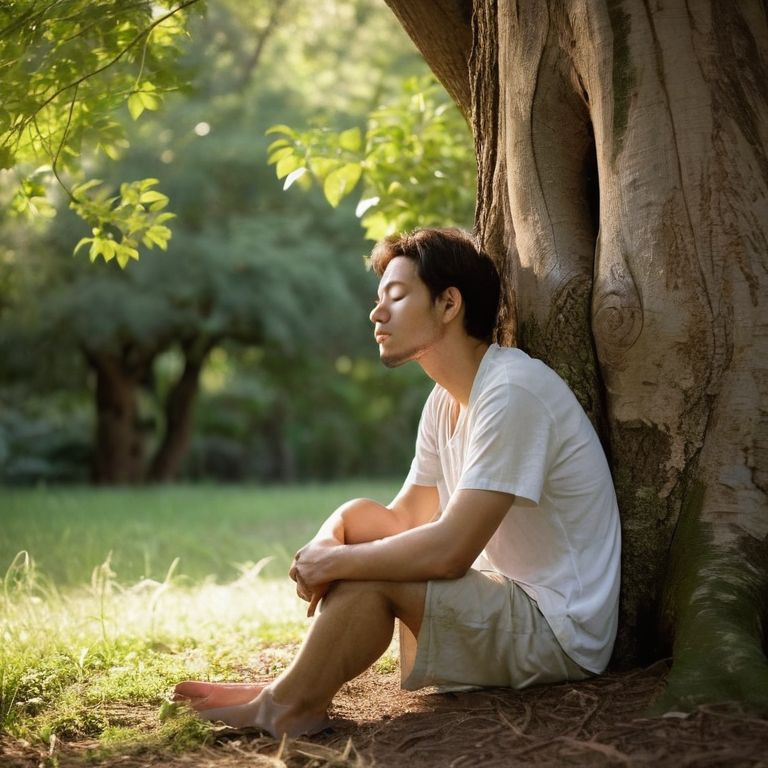I still remember the moment it hit me: most of our stress comes from unspoken expectations and poor communication. I was mediating an online dispute, and it dawned on me that the arguing parties were not really fighting about the topic at hand, but about unmet needs and unheard voices. This experience sparked my passion for helping people understand how to improve your self-awareness, and I’ve since dedicated my career to teaching individuals the skills of healthy relationships. As a relationship coach, I’ve seen firsthand how a lack of self-awareness can lead to feelings of frustration, anxiety, and disconnection.
In this article, I’ll share practical tools and real-life examples to help you develop a deeper understanding of yourself and others. You’ll learn how to recognize patterns, communicate effectively, and build stronger, more peaceful relationships. My goal is to provide you with honest, no-hype advice that you can apply to your daily life, whether it’s in your personal or professional relationships. By the end of this guide, you’ll have a clearer understanding of how to improve your self-awareness and the skills to navigate even the most challenging interactions with confidence and empathy.
Table of Contents
Guide Overview: What You'll Need

Total Time: 1 hour 30 minutes to several weeks
Estimated Cost: $0 – $100
Difficulty Level: Intermediate
Tools Required
- Journal (for writing and reflection)
- Smartphone (for accessing self-awareness apps)
- Mirror (for self-reflection and meditation)
Supplies & Materials
- Pens and Pencils (for journaling)
- Comfortable Seating (for meditation and reflection)
- Calendars or Planners (for scheduling self-reflection time)
Step-by-Step Instructions
- 1. First, let’s start by setting intentions for our self-awareness journey. Take a few minutes to reflect on what you hope to achieve by improving your self-awareness. Is it to reduce stress, communicate more effectively, or build stronger relationships? Write down your intentions in a journal or sticky note, and keep them somewhere visible to remind yourself of your goals. Remember, having a clear purpose will help you stay motivated and focused throughout this process.
- 2. Next, practice mindful moments throughout your day. This can be as simple as taking a few deep breaths before responding to a text or email, or pausing for a moment before reacting to a situation. Mindfulness helps you become more aware of your thoughts, emotions, and physical sensations, allowing you to respond more thoughtfully rather than react impulsively. Try to incorporate at least 2-3 mindful moments into your daily routine, and notice how it affects your interactions with others.
- 3. Now, let’s talk about the importance of journaling in developing self-awareness. Set aside 10-15 minutes each day to write down your thoughts, feelings, and observations. Reflect on your experiences, and try to identify any patterns or areas where you’d like to improve. Don’t worry too much about grammar or spelling – this is for your eyes only. Be honest with yourself, and explore your thoughts and emotions without judgment.
- 4. To gain a deeper understanding of yourself, try exploring your values and what’s most important to you. Ask yourself questions like: What do I stand for? What makes me feel fulfilled? What are my non-negotiables? Write down your values and priorities, and refer to them often to ensure you’re living in alignment with what matters most to you.
- 5. Another powerful tool for developing self-awareness is seeking feedback from trusted friends, family, or colleagues. Ask them to share their observations about your strengths, weaknesses, and areas for improvement. Be open to their feedback, and listen actively to what they have to say. Remember, feedback is a gift, and it can help you identify blind spots and grow as a person.
- 6. It’s also essential to practice self-compassion and treat yourself with kindness, especially when you make mistakes or encounter setbacks. Remember that self-awareness is a journey, not a destination, and it’s okay to stumble sometimes. Be gentle with yourself, and focus on progress, not perfection. Celebrate your small wins, and don’t be too hard on yourself when you slip up.
- 7. Finally, let’s talk about the importance of integrating new insights into your daily life. As you develop greater self-awareness, you’ll likely discover new patterns, habits, or areas for improvement. Take action on your insights, and make conscious changes to your thoughts, words, and actions. This might mean setting new boundaries, practicing more effective communication, or simply being more mindful in your interactions with others. Remember, self-awareness is not just about understanding yourself – it’s about applying that understanding to create positive change in your life.
Awakening Self Awareness

As we delve into the world of self-awareness, it’s essential to understand that practicing self-reflection is a continuous process. It’s not something you achieve overnight, but rather a journey that requires patience, dedication, and kindness towards yourself. By taking the time to understand your thoughts, emotions, and behaviors, you’ll begin to recognize patterns and habits that may be holding you back in your relationships and personal growth.
One of the most significant benefits of cultivating self-awareness is being able to understand emotional triggers. When you’re aware of what sets you off, you can develop strategies to manage your emotions and respond to situations more mindfully. This, in turn, can lead to more harmonious and meaningful relationships, as you’ll be better equipped to communicate your needs and boundaries effectively.
By incorporating simple yet powerful tools like meditation into your daily routine, you can experience the benefits of meditation for self-awareness. Even just a few minutes of mindfulness practice each day can help you tune into your inner world, allowing you to navigate life’s challenges with greater ease and clarity. As you commit to this journey, you’ll find that self-awareness exercises become an integral part of your personal growth, enabling you to make positive changes and cultivate a more compassionate, authentic you.
Practicing Reflection for Growth
As I reflect on my own journey, I’ve found that practicing reflection is key to growth. It’s about carving out time to examine your thoughts, emotions, and actions. I like to think of it as a weekly “relationship check-in” with myself. By doing so, I’ve become more attuned to my needs and desires, and I’m better equipped to communicate them to others.
Through reflection, you’ll start to notice patterns and gain clarity on what drives your behaviors. Try asking yourself questions like “What triggered my reaction in that situation?” or “What am I grateful for in my relationships?” This simple yet powerful practice will help you develop a deeper understanding of yourself and others, ultimately leading to more authentic and fulfilling connections.
Recognizing Emotional Triggers
To recognize emotional triggers, I recommend taking a step back when you feel yourself reacting strongly to a situation. Ask yourself, “What’s really going on here?” or “What am I really feeling?” This simple pause can help you identify patterns and gain insight into what sets you off.
By acknowledging these triggers, you can start to address the underlying needs or fears that drive your reactions, allowing you to respond more thoughtfully and intentionally in the future.
5 Mindful Steps to Unlock Deeper Self-Awareness
- Schedule regular solo time to journal and reflect on your thoughts, emotions, and actions, allowing yourself to identify patterns and areas for personal growth
- Practice mindfulness meditation to increase your awareness of the present moment and reduce judgment of yourself and others
- Engage in open and honest conversations with trusted friends or a therapist to gain external perspectives on your strengths, weaknesses, and emotional triggers
- Take ownership of your emotions by recognizing and labeling them, rather than suppressing or denying them, to develop a stronger sense of self
- Challenge negative self-talk by reframing critical inner voices into supportive and encouraging ones, fostering a more compassionate and realistic self-image
Key Takeaways for Improving Self-Awareness
By understanding your emotional triggers and practicing self-reflection, you can break free from patterns that hold you back in your relationships and personal growth
Developing self-awareness is a journey that requires patience, kindness, and a willingness to confront your own biases and assumptions, leading to more authentic connections with others
Ultimately, cultivating self-awareness is not just about personal growth, but about creating a ripple effect of empathy and understanding in all areas of your life, from intimate relationships to professional interactions
Cultivating Inner Awareness
Self-awareness isn’t about navel-gazing; it’s about understanding that our thoughts, emotions, and actions are intertwined – and that by tuning into this inner world, we can transform our outer relationships and live more authentically.
Mia Campbell
Embracing the Journey to Self-Discovery

As we’ve explored throughout this guide, improving your self-awareness is a journey that requires patience, effort, and a willingness to confront your inner world. We’ve discussed the importance of practicing reflection, recognizing emotional triggers, and awakening to the patterns that shape your thoughts and emotions. By implementing these strategies, you’ll be better equipped to navigate life’s challenges with clarity and confidence. Remember, self-awareness is not a destination, but a continuous process of growth and discovery.
As you embark on this journey, I encourage you to be gentle with yourself and celebrate your small wins. Every insight gained, every trigger recognized, and every pattern broken is a step towards a more authentic, compassionate, and fulfilling life. So, take a deep breath, be kind to yourself, and trust that the journey to self-awareness will be worth it. With time and practice, you’ll become more attuned to your inner world, and your relationships, decisions, and overall well-being will flourish as a result.
Frequently Asked Questions
How can I apply self-awareness to my daily interactions without feeling like I'm overthinking everything?
I totally get it – you don’t want to overanalyze every conversation. For me, it’s about striking a balance between being present and being aware. Try this: take a few deep breaths before interactions, and ask yourself, “What’s my intention here?” or “What am I hoping to get out of this conversation?” It helps me stay grounded and focused.
What role does mindfulness play in developing self-awareness, and how can I incorporate it into my busy schedule?
Mindfulness is a game-changer for self-awareness, helping you tune into your thoughts and emotions in the moment. Even a few minutes a day can make a difference – try incorporating mindful breathing or a short meditation into your daily commute or right before bed.
Can self-awareness really help me resolve conflicts or improve my relationships, and if so, what are some practical strategies to get started?
I’ve seen it time and time again: self-awareness is the game-changer in resolving conflicts and improving relationships. By understanding your own emotions and needs, you can communicate more effectively and avoid misunderstandings. Start by recognizing your emotional triggers and practicing reflective listening – it’s a powerful first step towards more harmonious connections.
